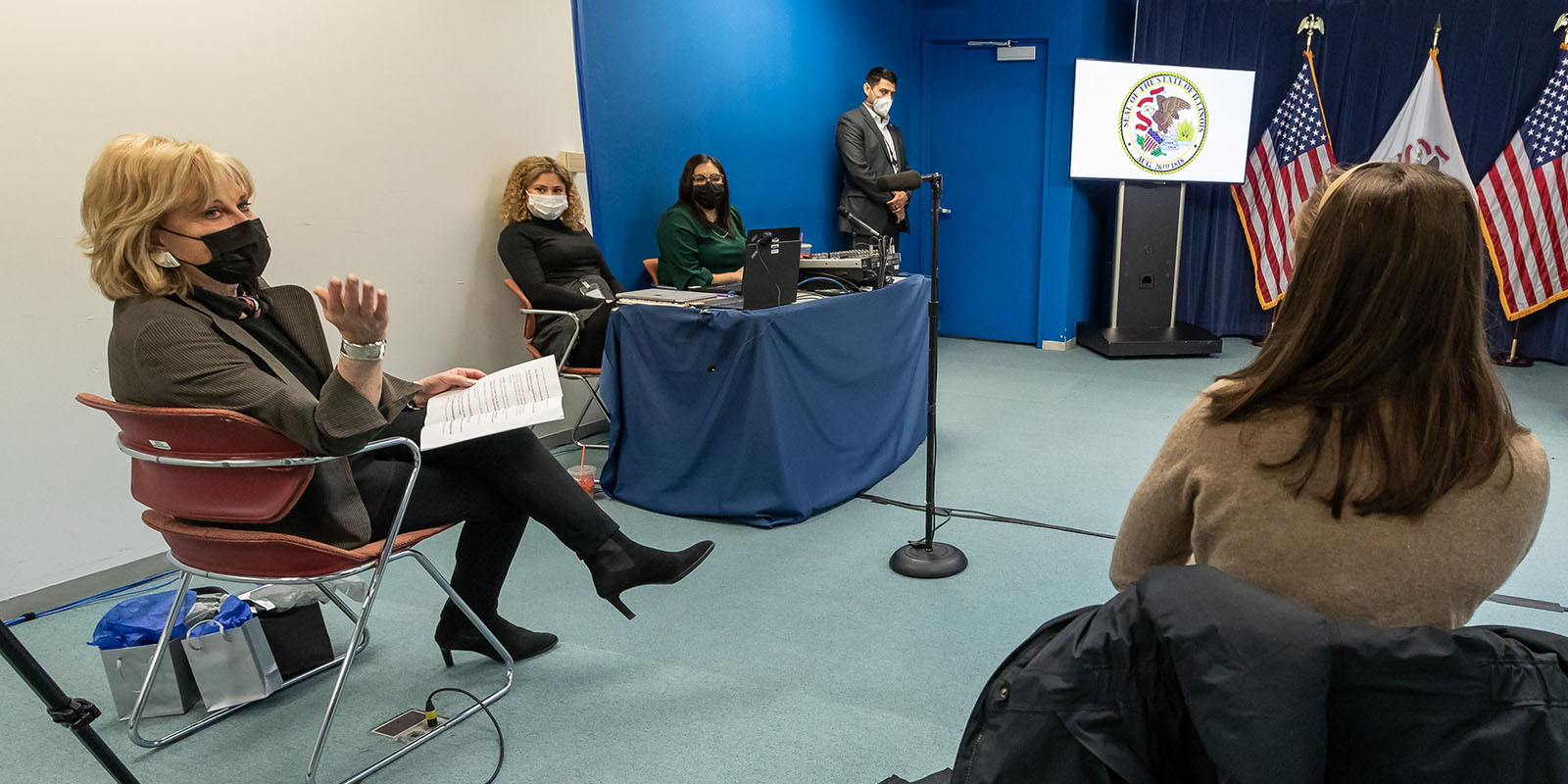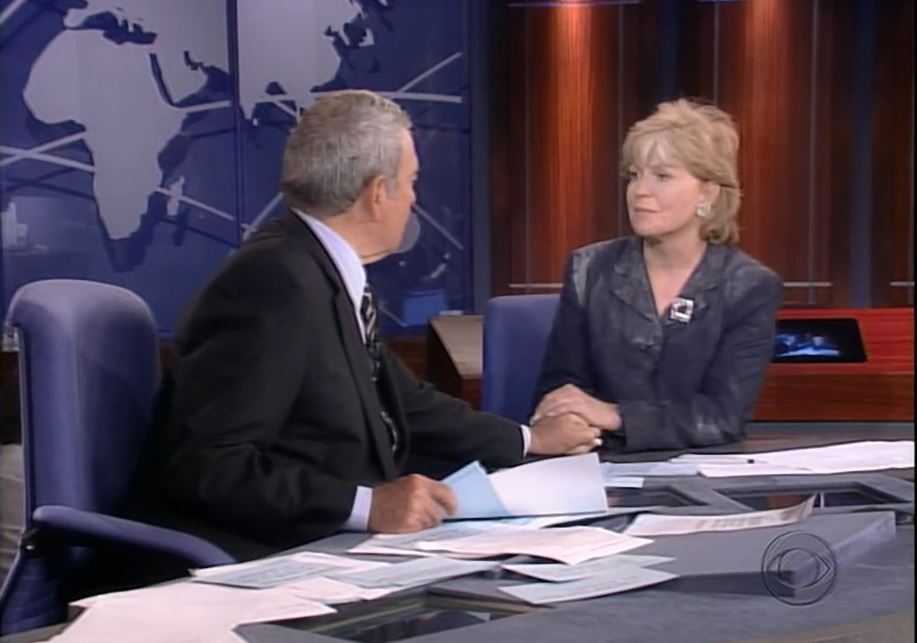 Carol Marin (left) was at Ground Zero in New York during the 2001 terror attacks. The veteran Chicago journalist shares her experiences so students take the lessons into their own journalism careers. (DePaul University/Jeff Carrion)
Carol Marin (left) was at Ground Zero in New York during the 2001 terror attacks. The veteran Chicago journalist shares her experiences so students take the lessons into their own journalism careers. (DePaul University/Jeff Carrion)The DePaul journalism students in Carol Marin’s classroom are too young to remember the 2001 terror attacks, yet the sights, sounds and smells of Ground Zero are fresh in her memory. Marin was there.
As the 20th anniversary of the Sept. 11 attacks approaches, the veteran Chicago journalist explains she shares her experiences so students take the lessons into their own journalism careers. Marin was working as a correspondent for CBS News out of the "60 Minutes" offices in New York City that day.
“I want them to get some sense of what New York and the nation, the Pentagon and Pennsylvania were like in the wake of those attacks,” says Marin, a longtime NBC 5 Chicago political editor and co-director of DePaul’s Center for Journalism Integrity and Excellence. “What it was like to smell the burning inside of New York in the base of those towers for weeks and months. And people searching for their loved ones with posters all over the walls around the site, saying ‘Have you seen my son Bill?’”
For a few years in the mid-aughts, Marin didn’t give many interviews about her experience covering 9/11. She declined to talk about running to the scene as the second plane hit the Twin Towers, being shielded from falling debris by a firefighter and then ushered to safety by a police officer.
And she didn’t often discuss appearing on national television just moments later with
CBS News anchor Dan Rather , with ash still dusting her dark blazer.
“I worried I would be seen as exploiting it. I didn't want to do that,” Marin says.
In the last few years, she’s once again been given to reflecting on the experience in radio and TV news interviews, including an emotional reunion on
NBC 5 Chicago with the New York police officer who saved her.
 Carol Marin discusses what she witnessed on 9/11 with CBS News anchor Dan Rather. (Image courtesy of CBS News)
Carol Marin discusses what she witnessed on 9/11 with CBS News anchor Dan Rather. (Image courtesy of CBS News)“I want us not to forget. I really believe in remembering 9/11, we might remember how the nation came together because we're not together now,” Marin says.
Beyond helping students understand a pivotal moment in our nation’s history, Marin says she uses her experience to teach core lessons about being a journalist. For example, good reporting takes practice and time to hone skills, and nothing beats being on the scene to witness and then explain what is happening. Marin says if you’re lucky, that practice and experience will converge at just the right moment.
“Everything I learned about reporting, reacting quickly, and being able to turn a story around was brought to bear on 9/11,” she says. “Because one moment, I'm standing on West Street, and the next moment a building is coming toward me and a firefighter is saving my life. In the following moment, I'm sitting next to Dan Rather trying to explain the experience to him and to people who are watching.”
Reporting on the terror attacks and their aftermath, she also draws lessons of how to gently approach people going through traumatic events.
“You respect the suffering of people and the privacy of people,” Marin says.
Finally, Marin says she and Don Moseley, fellow DePaul faculty member and co-director of the Center for Journalism Integrity and Excellence, emphasize to their students that reporters should take care of themselves as well.
“There is a recognition that as you come up against someone else's suffering, you've got to account for how you're feeling too,” Marin says. “You're not the story, and it's not about you. But when you leave that story and go home, it is about how you take care of the rest of your life.”
Two decades later, Marin says she has fewer of the “aftershocks” of her experience on 9/11. She’s not panicked anymore when a building shakes due to construction, though she still gets nervous driving to Midway Airport and seeing planes fly so close to skyscrapers.
Marin and Moseley recommend finding another friend in journalism to lean on, someone who understands the pressures and obligations of the job. Marin says she experienced that collegial support when she arrived to the newsroom on 9/11.
“I got to the studio covered in ash, and honestly, the DNA of people who didn't survive, and my job was to go back to work,” she says. “I had a lot of collegial support. There's no question about that.”